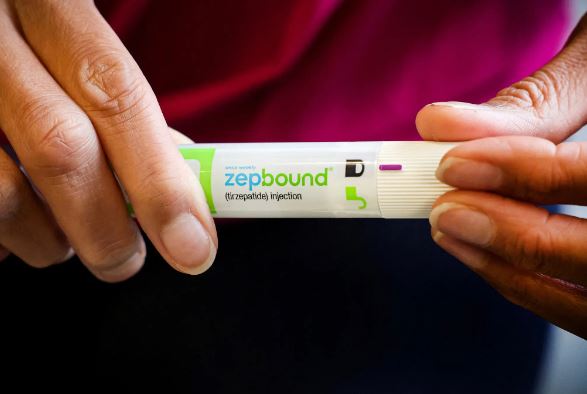Eli Lilly, a pharmaceutical manufacturer, revealed on Wednesday promising results from clinical trials of its obesity drug tirzepatide, also known as Zepbound, in addressing obstructive sleep apnea. This condition, characterized by episodes of stopped breathing during sleep, affects approximately 20 million Americans diagnosed with moderate to severe sleep apnea. Despite the prevalence, many individuals remain unaware of their condition, exacerbating risks of high blood pressure, heart disease, diabetes, strokes, and dementia.
The findings, derived from yearlong clinical trials, offer hope for a new treatment avenue. Although the detailed results are yet to be published in a peer-reviewed journal, Eli Lilly’s announcement of positive outcomes has garnered attention. Dr. Daniel M. Skovronsky, Eli Lilly’s chief scientific officer, stated that the company is still analyzing the data and plans to present comprehensive results at the American Diabetes Association’s 84th Scientific Sessions in June.
Experts outside the company have expressed enthusiasm for the preliminary findings. Dr. Henry Klar Yaggi, director of the Yale Centers for Sleep Medicine, hailed the results as “awesome,” emphasizing the potential impact on patient care. Dr. Eric Landsness, a sleep medicine researcher at Washington University in St. Louis, described the results as “phenomenal,” highlighting tirzepatide’s unique approach in targeting the underlying cause of sleep apnea rather than solely addressing symptoms.
Tirzepatide, approved by the FDA for weight loss in November, belongs to the class of GLP-1 drugs and has shown efficacy in addressing obesity and diabetes. The trials conducted by Eli Lilly involved overweight or obese individuals with moderate to severe obstructive sleep apnea. Notably, tirzepatide demonstrated significant reductions in apnea events per hour compared to placebo across both studies, with participants experiencing an average weight loss of approximately 20 percent.
Dr. Skovronsky attributed the observed improvements to the drug’s ability to reduce fat deposits in the tongue and airway, addressing key contributors to sleep apnea. Dr. Landsness underscored the importance of targeting these physiological mechanisms, noting the limitations of existing treatments like CPAP machines.
While CPAP remains effective for many patients, tirzepatide offers a promising alternative, particularly for individuals unable to tolerate CPAP or seeking additional therapeutic options. The potential for reducing apnea events and promoting weight loss represents a significant advancement in sleep apnea management.
Despite the promising results, access to tirzepatide for sleep apnea treatment may pose challenges. While the drug is approved for obesity, insurance coverage for weight loss medications varies, potentially limiting patient accessibility. Eli Lilly intends to seek regulatory approval for tirzepatide’s use in reducing sleep apnea in individuals with obesity or overweight, with the aim of securing insurance coverage for eligible patients.
The implications of these findings extend beyond clinical practice, highlighting the evolving landscape of sleep apnea management and the role of pharmaceutical interventions. With further research and regulatory approvals, tirzepatide may emerge as a valuable tool in addressing the complex interplay of obesity and sleep disorders, offering hope for improved patient outcomes and quality of life.

